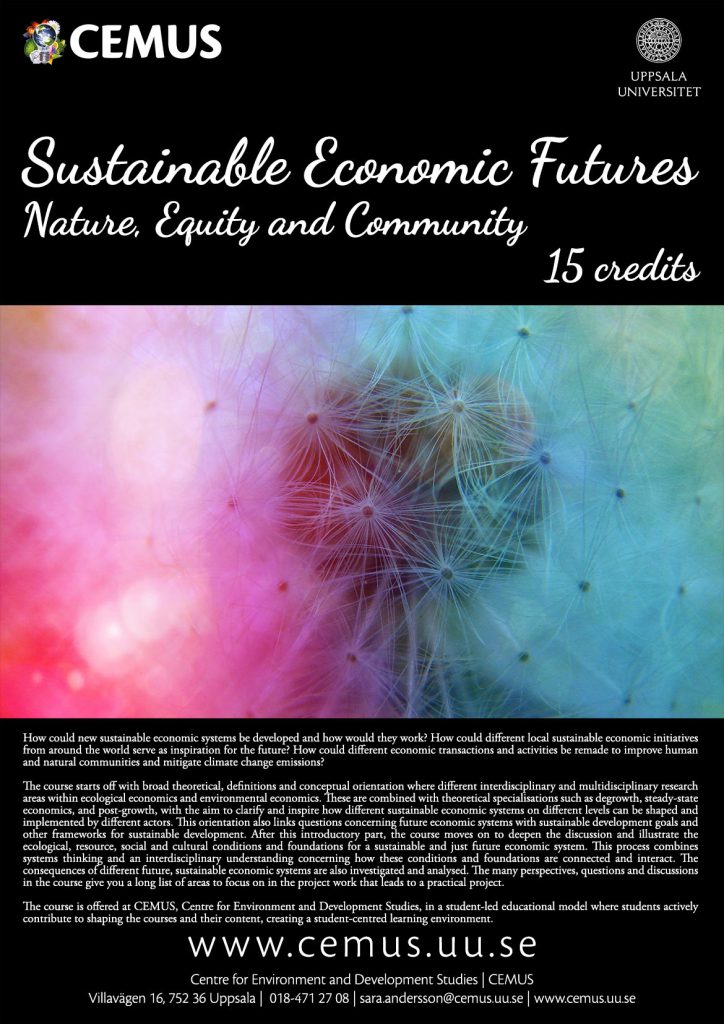About the course
How could new sustainable economic systems be developed and how would they work? How could different local sustainable economic initiatives from around the world serve as inspiration for the future? How could different economic transactions and activities be remade to improve human and natural communities and mitigate climate change emissions?
The course starts off in a broad theoretical, definitions and conceptual orientation where different interdisciplinary and multidisciplinary research areas within ecological economics and environmental economics. These are combined with theoretical specialisations such as degrowth, steady-state economics, post-growth, with the aim to clarify and inspire how different sustainable economic systems on different levels can be shaped and implemented by different actors. This orientation also links questions concerning future economic systems with the sustainable development goals and other frameworks for sustainable development.
After this introductory part the course moves on to deepen the discussion and illustrate the ecological, resource, social and cultural conditions and foundations for a sustainable and just future economic system. This process combines systems thinking and an interdisciplinary understanding concerning how these conditions and foundations are connected and interact. The consequences of different future, sustainable economic systems are also investigated and analysed. The many perspectives, questions and discussions in the course give you a long list of areas to focus on in the project work that leads to a practical project.
Syllabus
Link to syllabus.

